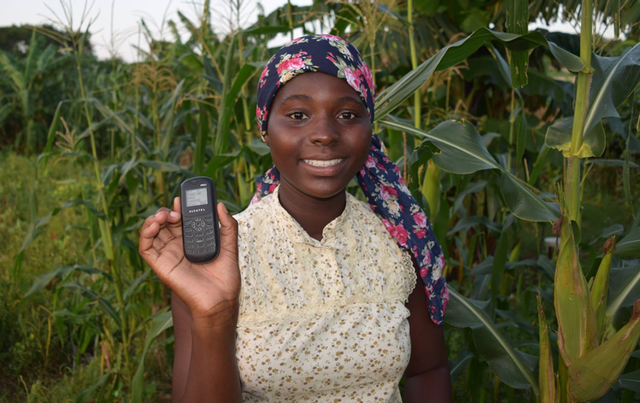
What is e-Agriculture Strategy?
An e-Agriculture strategy is using innovative digital technology solutions like precision agriculture, drones, big data, predictive analytics, and blockchain to improve social and economic outcomes for smallholder farmers.
e-Agriculture programs aim to increase food security by helping smallholder farmers improve modern ICT4Ag farming methods and access to markets. Agricultural ICT4D strategies encompass the full agricultural value chain and includes adjacent technologies like digital financial services and geographic information systems.
Communication in Agriculture
Smallholder farmers have limited knowledge, services, and technologies available to them. They typically need support to adopt modern farming methodologies.
Agriculture technology solutions focus on extension services for farmers to adopt new technologies and innovation. ICTs can amplify the efforts of the extension agents to help farmers plan what crops to grow, source inputs for crop cultivation, and selling their produce in local market.
Chatbots offer an exciting opportunity for governments to engage farmers on the social media platforms where farmers already congregate. For example:
- Facebook chatbots are a popular way to answer basic questions or help farmers apply for government support services.
- SMS text message chatbots can also help private sector companies develop new business leads and educate extension agents on their services.
ICT communication tools can play a crucial role in supporting farmers to access new inputs, credit, and markets with personalized and customized services.
Examples of e-Agriculture Programs
The potential to achieve high impact at the farm-level requires appropriate technology and adoption methodologies. International development organizations can use e-Agriculture communication programs like those below to support ICTforAg value chain ecosystems in developing countries.
ICTforAg services and solutions disseminated through mobile phones offer the promise to connect millions of smallholder farmers and improve their access to agricultural...
Share your ICT4Ag knowledge and participate in a new report: Agriculture in the Digital Age
The Bill & Melinda Gates Foundation, USAID’s Bureau for Resilience...
Published on: Dec 23 2019 by Guest Writer - Comments Off on Exploring Food Insecurity via Geospatial Data Reveals Critical Local Differences
When making strategic and tactical decisions, donors, development implementers, and governments want to rely on the best available data. Until now, this data often...
In an African country (any of them), down comes a memo from the District Office to Local Authority. Please supply list of all farmers in your locality, adding the...
The CGIAR Big Data in Agriculture platform is where information becomes power to predict, prescribe, and produce more food, more sustainably. It democratizes decades...
Development programming is full of information gathering, such as farm size. In a program I once worked on, smallholder farmers had to have less than three hectares...
Published on: Jul 24 2019 by Guest Writer - Comments Off on When Is the Best Time to Send IVR and SMS Messages to Farmers?
While India‘s total fertiliser consumption is less than the global average, it is the second largest consumer of urea (a nitrogen based fertilizer) in the...
Smallholder farming is a challenging enterprise. There are around 500 million smallholder farmers in the world, and they produce up to 80% of the food consumed...
Advances in computing power, data storage, and data communications are creating powerful tools for helping make smallholder farming and food systems more precise,...
Published on: May 22 2019 by Guest Writer - Comments Off on How a Mobile Phone Game Found 50,000 High-Quality Client Leads
Climate change has been a growing challenge in Madagascar, with smallholder farmers being particularly affected by increasingly frequent climate shocks. Climate...












